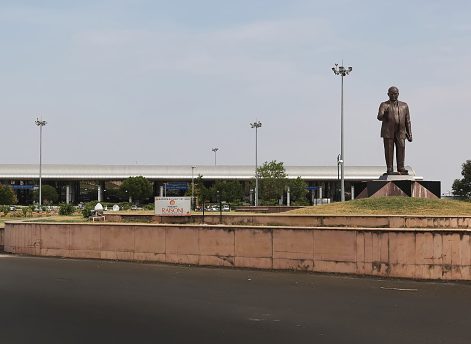Every year on 6th December, India commemorates the Mahaparinirvan Diwas, the death anniversary of Dr. Bhimrao Ramji Ambedkar, the visionary architect of the Indian Constitution and Bharat Ratna awardee. Dr. Ambedkar, who was affectionately called Babasaheb, dedicated his life to promoting equality and eradicating caste-based prejudice. On this day, millions of people across the country pay tribute to his enduring legacy and his relentless fight for social justice.
The Significance of Mahaparinirvan Diwas
The death anniversary of Dr. Ambedkar holds profound significance for millions of his followers and admirers. In Buddhism, Mahaparinirvana refers to the ultimate state of nirvana achieved after death, liberation from the cycle of birth and death. As a follower of Buddha’s teachings, Dr. Ambedkar’s passing is observed as Mahaparinirvan Diwas, symbolizing his final liberation and his spiritual leadership. Babasaheb’s contributions to eradicating the scourge of untouchability have earned him the status of a Buddhist guru for many, making this day a moment of reflection and inspiration.
Dr. Ambedkar’s Commitment to Social Justice
Dr. Ambedkar’s life was marked by his unwavering commitment to uplifting marginalized communities, particularly Dalits, women, and workers. He envisioned a society free from the shackles of caste oppression and tirelessly advocated for the empowerment of the oppressed. His revolutionary measures included advocating for reservations in education, employment, and politics for disadvantaged groups.
To amplify the voices of the oppressed, Dr. Ambedkar founded the newspaper Mooknayaka (Leader of the Silent), highlighting the struggles and injustices faced by the marginalized. His leadership in pivotal movements, such as the Mahad March for public water access in 1927 and the Kalaram Temple Entry movement in 1930 challenged entrenched caste hierarchies and social inequalities.
Dr. Ambedkar’s Role in Nation-Building
As the Chairman of the Constitution Drafting Committee, Dr. Ambedkar played an instrumental role in drafting the Indian Constitution, which was adopted in 1949 with minimal changes. His emphasis on equality, justice, and liberty laid the foundation for a democratic and inclusive India, safeguarding the rights of Scheduled Castes, Scheduled Tribes, and Other Backward Classes.
Dr. Ambedkar’s contributions extended beyond social reform. His doctoral thesis inspired the establishment of the Finance Commission of India, and he was pivotal in framing the Reserve Bank of India (RBI) Act, 1934, which led to the creation of the RBI itself. His foresight in infrastructure development and resource management led to the foundation of Employment Exchanges and crucial projects like the Damodar Valley Project and Hirakud Dam Project.
A Legacy of Equality and Justice
Dr. Ambedkar’s multifaceted contributions, spanning from economic policy to constitutional law, have smoothened his legacy as one of India’s greatest nation-builders. Posthumously awarded the Bharat Ratna in 1990, his vision of a just, equitable, and progressive India continues to inspire generations.














